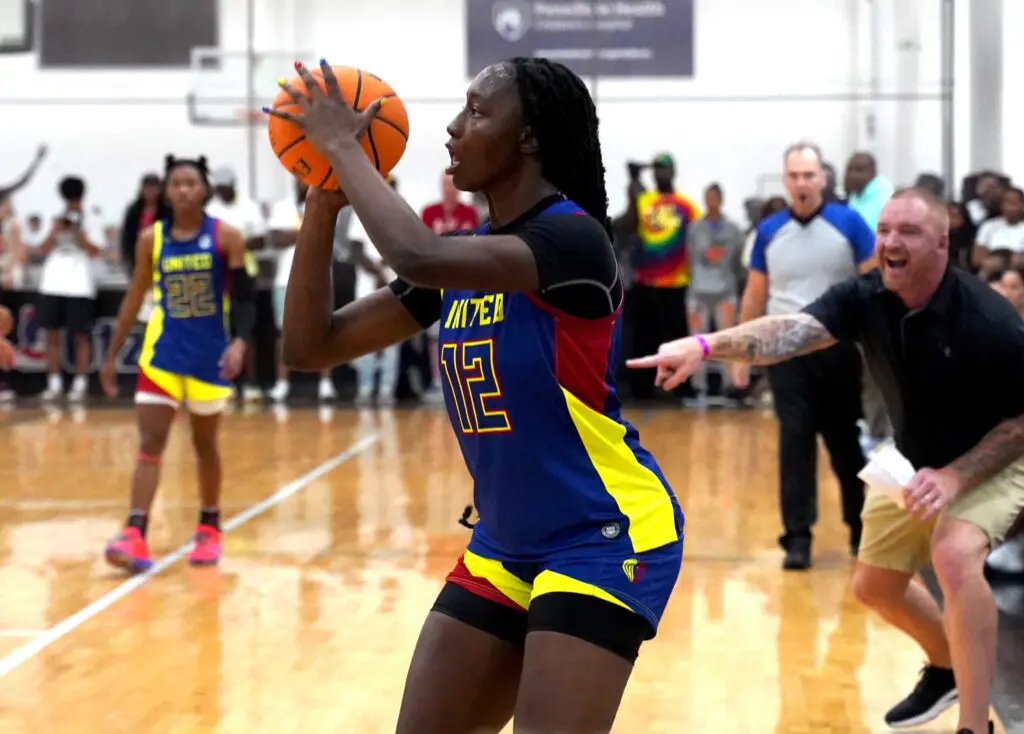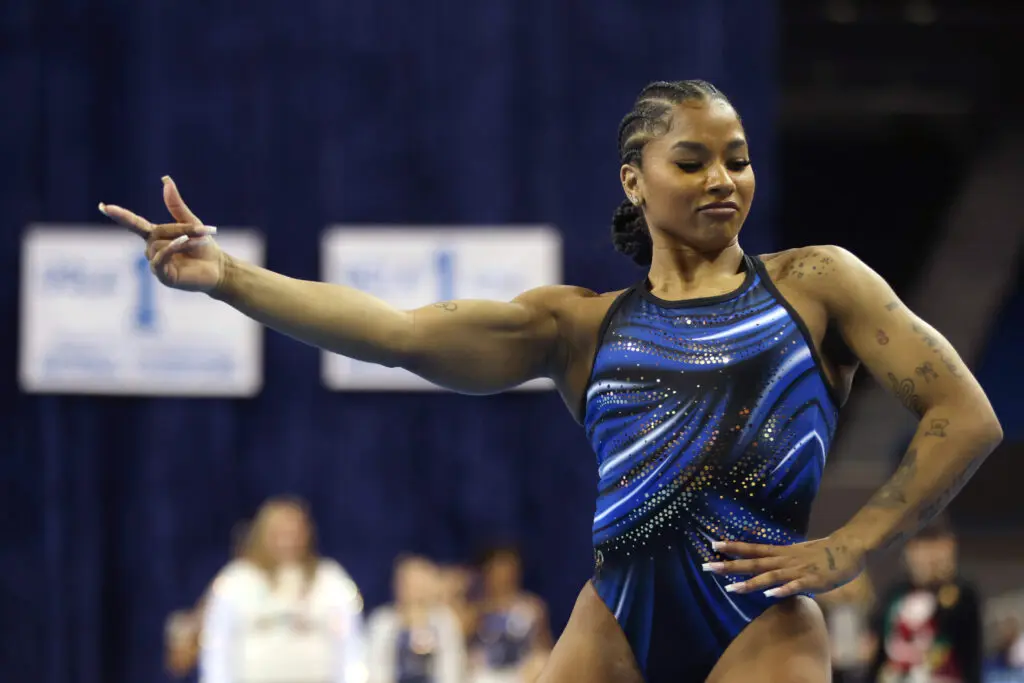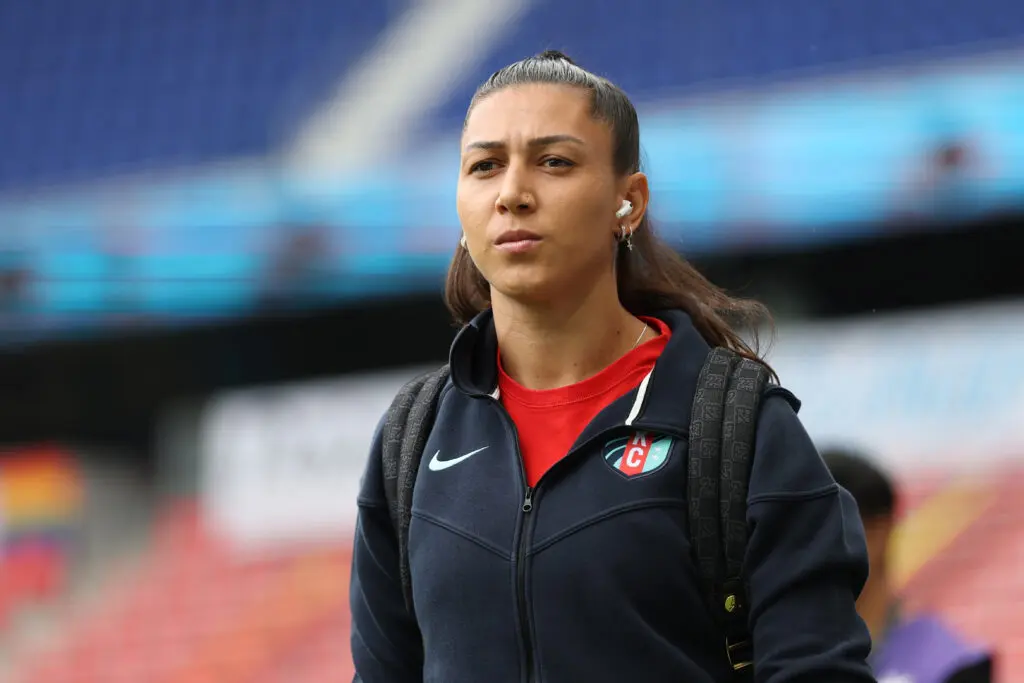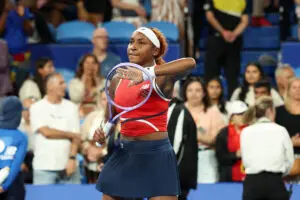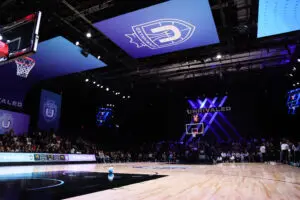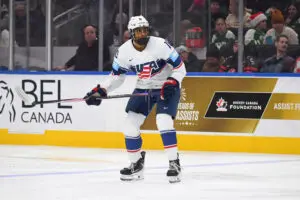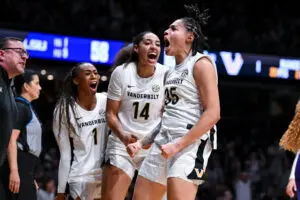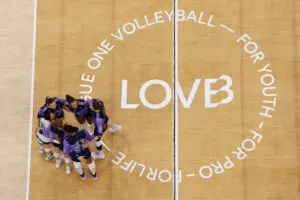MANHEIM, Pa. — In the early 2000s, Alfred “Mo” Motton devoted himself to providing opportunities for Atlanta youth looking to connect with basketball.
Now, the program he established has become a powerhouse on the AAU circuit.
At last weekend’s Girls Under Armour Association Finals, three of the final eight U17 teams left standing hailed from Motton’s program, Finest Basketball Club. On top of that, FBC had multiple teams represented in each age group.
In its nearly 20-year tenure, FBC has produced several McDonald’s All Americans and Team USA players. The program has launched players to rosters in each of the Power 5 conferences and the Big East, among others, and it consistently puts its athletes on AAU’s biggest stages — and succeeds at the highest levels.
“I started in the inner-city of Atlanta, just helping kids get the resources to get real basketball training and exposure,” said Motton, who serves as FBC’s program director. “I was just an advocate of connecting the suburbs and the inner-city kids so they could ball together. It really took off once we got the right kids in place. Our brand just continues to grow.”
There are dozens of FBC teams across 13 states. Though it began in California, the brand has exploded in the South over the last decade. Motton and the FBC Family plan to relaunch the brand in California for its 20th anniversary next year. The FBC model is simple: continue to grow the brand across the nation with the right partners and provide a space for young athletes to develop.
Motton, a graduate of Alabama A&M University, played four years of basketball with the Bulldogs and received a B.S. in Business Management. He prioritizes community and culture within his program, with the unyielding purpose of preparing his athletes for the next steps in their basketball careers.
When assembling such a wide-reaching staff, Motton looks to plug in coaches who’ve experienced the game from different angles and connect with the FBC mindset. Everybody has a role to play in order for the process to work as intended.
These teams start at the fifth grade and run through U17. Regardless of who arrives to the program as a fifth grader, there’s a large chunk of time in which the athlete can be taught how to find the right mindset. Once those younger kids reach high school, they are at an advantage any time they step onto a basketball court. And so are the FBC rosters because, when they start early, the foundation of the teams are set for years to come.
Perhaps there’s no greater success story to FBC’s mission than the No. 1 overall pick in this year’s WNBA Draft.
“Rhyne Howard,” said Jaloni Cambridge, a point guard for U17 FBC United. “She was on one of the first FBC United teams. It reminds me that I could do the same, what she’s done.”
Other FBC alumni include Indiana Fever guard Tiffany Mitchell, Duke guard/forward Elizabeth Balogun and Florida State guard Jazmine Massengill.
In Motton’s eyes, having alumni succeed at high levels of the sport is all about the process.
“What [seeing alumni succeed at high levels of the sport] does is it shows that the platform we’ve created for kids really works as they continue to elevate,” said Motton, who also coaches FBC United. “We have a rich tradition of players going to the next level and performing. We put a lot of kids in college. We’ve been really influential at how the landscape of grassroots is starting to be looked at and changed in the South and throughout the country.”
Only FBC United can boast its inclusion of two members of Team USA — Cambridge and Stanford commit Courtney Ogden — and three top-25 recruits in the Class of 2023 — Ogden, Alabama commit Essence Cody and UNC commit Reniya Kelly.
On a roster of 11 players, the competition is stiff, and the standards are high.
“It’s a big opportunity when you get to play with players that actually sharpen your skills,” said Marvin Jones, father of FBC United’s Zamareya Jones. “The coaching staff, they’re real. They don’t sugarcoat it. They don’t play favorites. It gets you ready for college. My daughter comes off the bench. That’s a lot when you’re dealing with college players, but we’re able to talk her through it now. Instead of when she gets to college a hundred miles away and she goes through it alone in her dorm room.”

Practicing patience is necessary to the foundation of the FBC culture.
“To see what these kids are able to do when they leave us,” Motton said, “I just think the biggest word is they’re leaving us prepared — prepared to compete. Not just go to a school and cheer for the next person. They learn early how to play with really good players and how to be good teammates. It’s about transitioning to the next level when they leave us. I think if we had more travel ball coaches who understood it’s about preparing the kids for the next level, kids would be a little more prepared when they go to college.
“Our club, to me, is like a pre-college prep course. We simulate what kids see in college. They’ll see adversity. They’ll know that they can come back from bad games and that every day when we’re in practice, they have to compete with other kids at their level. There’s always a sense of competition. Coaches of professional teams, that’s what they strive for. So being able to find a way, at our level, to simulate it at its highest level is the goal.”
The GUAA U17 championship went to four overtimes in an instant classic. FBC United maintained a strong lead for the first half of regulation, but as the clock hit zero at the end of the fourth overtime, FBC United found itself the first runner-up to coach Scott Johnson’s West Virginia Thunder.
Motton stressed that while the goal is always a victory, the reality of both basketball and life is that things won’t always end how we’d hoped.
“I just say, ‘Listen, man. Sometimes you don’t go perfect,’” Motton said. “That was probably one of the best travel ball games we will ever be a part of, and OK, we lost. But we’ll never forget it, the momentum and the intensity. The thing is, we win a lot.
“Losing does hurt, but you kind of see who you are during adversity.”
I’ve been raised. Now I’m ready. Thanks to the Finest Basketball Club ♥️🤍💙#FBCstrong #FBCUnited #GirlsUAA 📸 IG @herhoopsnetwork @jtshotz pic.twitter.com/pBfEaP9smK
— C O U R T (@CourtneyP_Ogden) July 28, 2022
For Cody, Kelly and Ogden, there won’t be another summer with FBC. Once they graduate high school next spring, they’ll be off to make an impact at the college level. However, in Monday’s championship game, they left their mark on FBC in one final, invaluable way.
“We’re definitely working toward keeping the momentum going in the right direction,” Motton said. “We had hundreds of younger kids watching that game, right? They get an opportunity to dream of one day being involved in that. Our older kids do such a good job of being role models for our young kids, and it always gives us a sense of another kid rising to be that next kid up to perform.”
There’s no doubt that playing for FBC requires sacrifice and commitment. It can be taxing on the players when a significant portion of their childhood is devoted to the program. The culture isn’t for everyone, and quite frankly, there isn’t enough space for everyone who wants the challenge. But FBC is cultivating skills and teaching lessons unique to its unselfish, high-intensity environment.
It’s preparation through togetherness.
And when it’s time for the older kids to move on, they’ll be ready.
“The best thing about travel ball is you have to graduate,” Motton said. “It’s rewarding to see these kids come from fifth grade and go to Stanford. We’ve done our job, to have kids be able to reach the heights that they’ve been able to reach with us. It’s just been a good journey. We can’t complain.
“It’s time for them to move forward, and it’s time for the next kid to step up.”
Caroline Makauskas is a contributing writer for Just Women’s Sports. She also writes about college basketball for Blue Ribbon Sports and covers a variety of sports on her TikTok @cmakauskas. Follow her on Twitter @cmakauskas.
